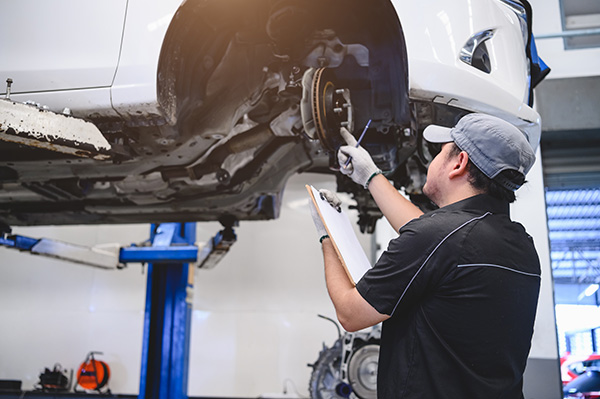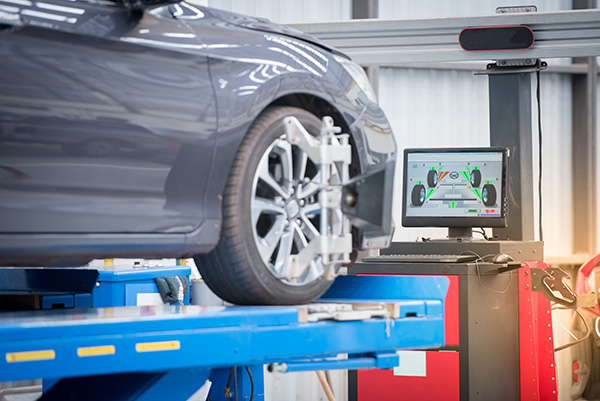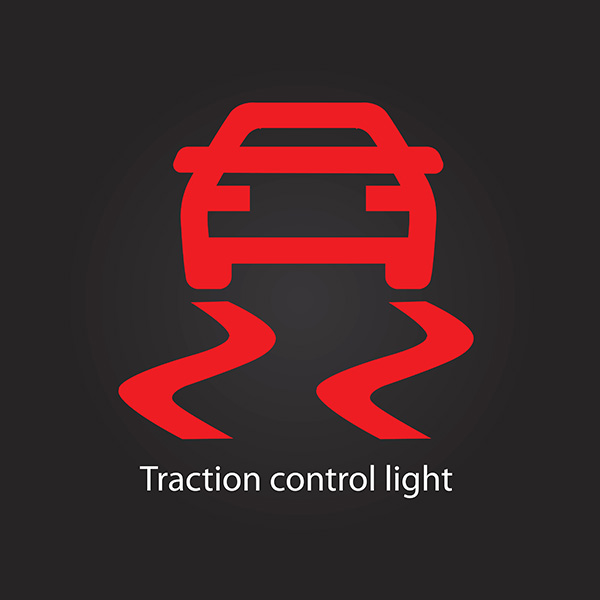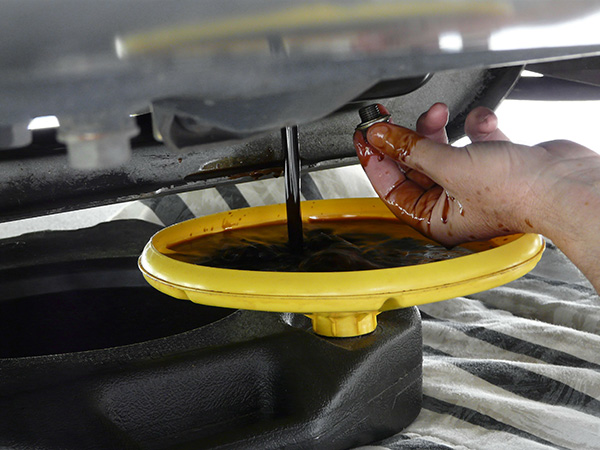Posted on 12/19/2025

A grinding noise when you press the brake pedal is one of those sounds you do not want to ignore. It can show up as a growl, scrape, or harsh metallic sound that you feel through the pedal and sometimes the steering wheel. Sometimes it is loud every time you stop, other times it only shows up during certain speeds or after the car has been parked. That noise is the brakes telling you something is wrong, and the sooner it is checked, the less damage you are likely to find. What Brake Grinding Usually Sounds and Feels Like Grinding takes a few different forms, and the details help point to the cause. You might hear a steady scrape whenever you press the pedal, a growl that gets louder as you slow down, or a short grind right at the end of the stop. Some drivers feel a vibration or roughness in the pedal at the same time, especially from the front brakes. If the noise changes with how hard you press the brake, or it comes and goes as the wheels turn, that is valuable ... read more
Posted on 11/28/2025

Wheel alignment sounds simple, yet it does a surprising amount of quiet work every day you drive. By keeping each wheel pointed in the right direction and set at the right angle, alignment helps the car track straight, saves tread, and reduces strain across steering and suspension parts. When alignment drifts, the signs often show up first in your tires. Catching it early keeps the rest of the car feeling tight and predictable. What a Proper Wheel Alignment Actually Adjusts Alignment sets three angles on most vehicles: toe, camber, and caster. Toe is whether the front edges of the tires point slightly inward or outward, which affects straight-line stability and scrub. Camber is the tilt of the tire relative to the road; too much tilt on one side can chew the inner or outer edge of a tire. Caster is the fore-aft tilt of the steering axis that helps the wheel self-center. When those angles sit in spec, the st ... read more
Posted on 10/31/2025

Winter brings more than just cold air. It challenges your vehicle in ways that warmer weather doesn't. From icy roads to freezing fluids and weakened batteries, the cold season puts every part of your car to the test. Taking a few key steps before winter hits can help you avoid unexpected problems and keep your vehicle running safely and reliably. 1. Inspect Your Tires for Winter Grip When roads get icy or covered in snow, your tires become your first line of defense. If the tread is worn or if the tires are not rated for winter driving, your vehicle will struggle with traction, braking, and cornering. Even all-season tires lose their effectiveness once temperatures drop consistently below 45°F. Check the tread depth and tire pressure. Cold air lowers tire pressure, which can lead to uneven wear and poor fuel economy. It’s also a good idea to rotate ... read more
Posted on 9/26/2025

Seeing the traction control light pop up on your dashboard can be confusing, especially if your vehicle seems to be driving normally. While this warning doesn’t always mean there’s an immediate danger, it’s still important to understand why the light comes on and what steps you should take to keep your car safe and reliable. What the Traction Control System Does Your car’s traction control system is designed to help maintain grip between the tires and the road. It works by monitoring wheel speed and automatically adjusting power when it detects a wheel losing traction. In slippery conditions like rain, snow, or ice, this feature prevents the tires from spinning excessively and helps you maintain control. When the traction control light turns on, it usually means one of two things: the system is actively working, or there’s a fault preventing it from doing its job. Normal Operation and Warning Signs It’s normal f ... read more
Posted on 8/29/2025

An oil change might seem like a simple service, but it is extremely important for keeping your engine healthy. While it’s easy to put off, delaying your next oil change can set the stage for bigger, more expensive problems down the road. Oil isn’t just a lubricant—it also cools engine components, prevents corrosion, and removes sludge and contaminants. If you're overdue for an oil change, here are six important reasons to make it a priority. 1. Old Oil Can’t Protect Your Engine Properly Motor oil has a shelf life. Over time, it breaks down under heat and pressure, losing the ability to lubricate moving parts effectively. When this happens, metal components inside your engine start to rub against each other without enough protection. That leads to increased friction, heat buildup, and premature wear. Fresh oil keeps everything running smoothly and reduces stress on your engine. Ignoring routine changes allows wear and tear to speed up, sh ... read more